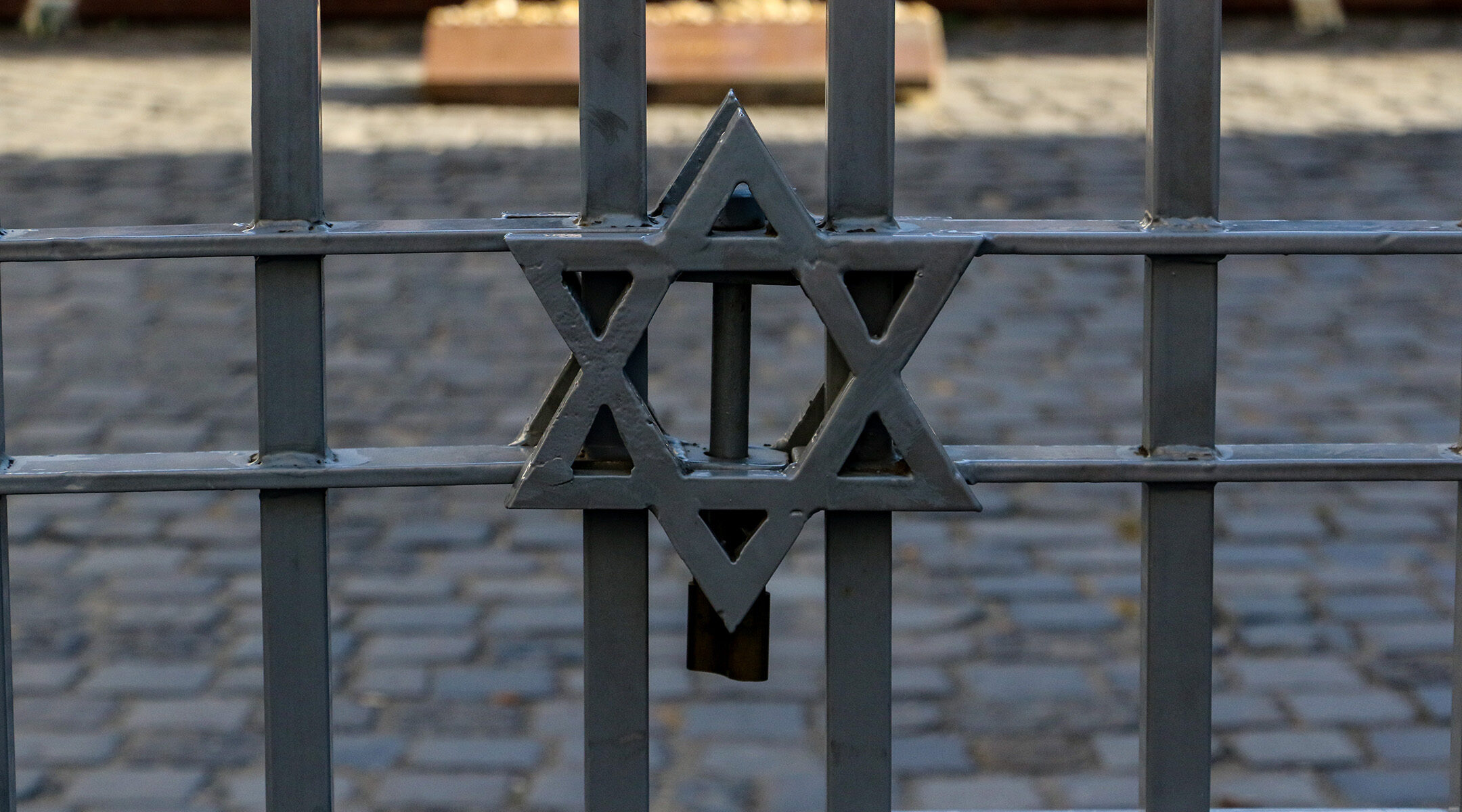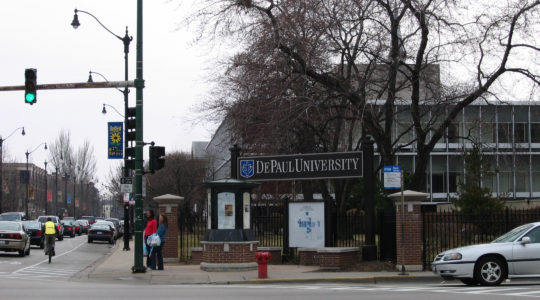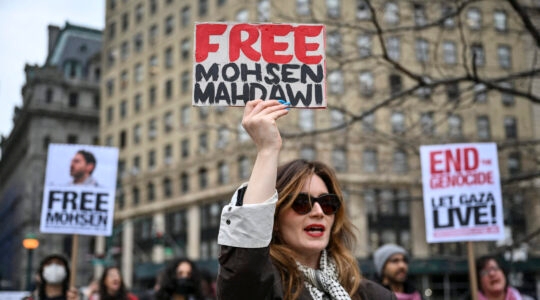This article was produced as part of JTA’s Teen Journalism Fellowship, a program that works with teens across the world to report on issues that impact their lives.
(JTA) — During one of the recent rainstorms in Los Angeles, a security guard at Amanda Kronstadt’s Jewish high school reminded her to wear her rain jacket on her way home. It was a small thing but the freshman appreciates him going the extra mile.
He’s “always looking out for the students,” she said.
It’s important to her that she feels cared for in this way, especially since the late-2022 wave of antisemitic threats targeted Jewish institutions, including schools. In a 17-day span in October and November, at least 14 United States Jewish day schools reported receiving suspicious phone calls or bomb threats, according to the Anti-Defamation League.
Schools, Jewish community centers and synagogues have come to rely on their security staff. While security at synagogues used to be an afterthought, said Jason Moss, the executive director of the Jewish Federation of the Greater San Gabriel Valley and Pomona, now, “it’s part of all planning and into every aspect of a synagogue.”
After a gunman took hostages at a synagogue in Colleyville, Texas in January 2022, Moss spent time looking at security staff in the Jewish world. “They play a vital role in keeping the community secure,” he said. “That it’s something to be commended for, especially for helping to defend a place that is not a part of who they are in some cases.”
Melissa Levy says she couldn’t do her job as director of congressional engagement at Pasadena Jewish Temple without the security staff.
“They’re a part of the family,” said Levy. “Because they are keeping their eyes and ears open and making sure that we stay safe, we can do the rest of our jobs and really help build community here.”
In 2021, there were 61% more attacks against synagogues and Jewish community centers compared to 2020, according to the Anti-Defamation League. Additionally, antisemitic incidents reached an all time high, with 2,717 occurrences of assault, harassment and vandalism.
The Anti-Defamation League also found that there has been a dramatic spike in belief in antisemitic tropes since 2019.
“In the last several years, there has been not only a rise of antisemitism and hatred overall,” said Moss. This “has caused there to be a greater sense of urgency to take all of these threats seriously.”
Due to rising antisemitism, 54% of synagogues surveyed had some form of armed security guards, a 2018 study found. Only 17% of non-Jewish houses of worship had security guards. The religious buildings that were closest to synagogues in the percentage of security guards were mosques with 28%.
Keeping regular security does not come cheap. Rabbi Daniel Bogard in St. Louis, Missouri estimated that security at synagogues costs at minimum $50,000 and can even be near $150,000 in his 2022 interview with Business Insider. Jason Moss said that many synagogues struggle with funding security because it’s an additional expense.
Because of the costly price tag of security, synagogues can apply to receive assistance from the federal Nonprofit Security Grant Program. In 2022, the program had $250 million available, a $70 million increase from 2021. Despite the quarter billion dollars, only 52% of applicants received funding as requests totaled almost $450 million, per Jewish Insider. Per request of Jewish community leaders, President Joe Biden proposed a $360 million budget for the program in 2023, according to The Jerusalem Post.
Mike Sayegh has provided security to the Pasadena Jewish Temple and Center for nearly four years. Along with his brother, the two run Power House Security, a protection service. The company provides the synagogue a security guard when large groups are on campus, a task he often takes upon himself.
Throughout Sayegh’s work at the Pasadena temple, he has learned more about Judaism and made connections with congregants. As a Christian, he said his work opened up new perspectives and gave him a sense of familiarity with the religion and culture.
Not everyone is on board with beefed-up security at synagogues, especially when guards are armed and in uniform. Some think it undermines the welcoming aspect of a Jewish institution, and many Jews of color and their allies say a heightened security presence can make them feel less safe.
But while acknowledging these objections and somber reasons for having security at synagogues, many congregants have been able to embrace their security team as a part of their community.
That rings true for Samuel Svonkin, a 16-year-old member at Pasadena Jewish Temple and Center. Svonkin has seen security become more prominent at his synagogue in recent years. “Synagogue security doesn’t only benefit the congregation physically but also makes simply existing and being Jewish in the synagogue a more pleasant experience,” he said. “Security does more than protect the synagogue. It allows it and its members to function as one.”
At Carla Kopf’s synagogue, security guards high-five the men, let children jump into their arms and address congregants by name. Kopf, the director of k-12 education and engagement at Temple Isaiah in Los Angeles, California, has witnessed the connection between security and congregants for the past 29 years. “The [care] and love these guys have for our staff and our membership is quite amazing,” she said.
Security guards at Kehillat Israel in Pacific Palisades, California have also built strong connections with their community. Rabbi Carrie Vogel of Kehillat Israel in Pacific Palisades, California said, “Our community has had armed guards for maybe 7-8 years and they have been widely embraced by our community. They know the names of the [Early Childhood Center] kids, wave to everyone and are a friendly and helpful presence when people enter our building,” said Rabbi Carrie Vogel, the director of the Jewish Experience Center at Kehillat Israel.
As Jewish communities embrace their security, the guards embrace them back. “I love it here. I feel appreciated here,” said Sayegh. “I’ve been thanked more times than I can count. I’ve been thanked by people I’ve never met.”
JTA has documented Jewish history in real-time for over a century. Keep our journalism strong by joining us in supporting independent, award-winning reporting.






